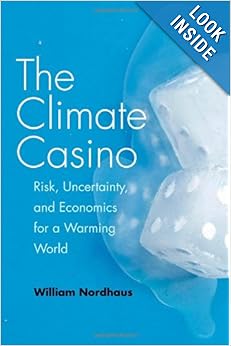From: The U.S. Census: County Business Patterns (CBP) is an annual series that provides subnational economic data by industry. This series includes the number of establishments, employment during the week of March 12, first quarter payroll, and annual payroll. This data is useful for studying the economic activity of small areas; analyzing economic changes over time; and as a benchmark for other statistical series, surveys, and databases between economic censuses. Businesses use the data for analyzing market potential, measuring the effectiveness of sales and advertising programs, setting sales quotas, and developing budgets. Government agencies use the data for administration and planning.
ZIP Code Business Patterns data is available shortly after the release of County Business Patterns. It provides the number of establishments by employment-size classes by detailed industry in the U.S.
Month: December 2013
More and more things are being made here;U.S. Census data shows manufacturing in the U.S. (and Texas) continues to rebound
No matter what data you look at, manufacturing in the U.S. continues to increase. Sales for all U.S. manufacturers exceeded $1.69 trillion in the 1st quarter of 2012. In comparison, 1st quarter sales of manufacturing goods had falling to about $1.2 trillion at the deepest point of the ‘great recession’ in 2009.
Manufacturing levels have reached, and slightly exceeded pre-recession economic output in nominal or non-inflation adjusted terms. Before the recession, manufacturing 1st quarter sales were at $1.6 trillion in nominal or non-inflation adjusted terms.
So where is a good source for manufacturing output information?
http://www.census.gov/econ/manufacturing.html
The U.S. Census industry portal is also a good source
http://www.census.gov/econ/isp/
Bitcoin being studied by Federal Reserve Bank of St. Louis
While the legitimacy of the bitcoin is still being debated, a number of major financial institutions are keeping a watchful eye on its development.
Maria A. Arias, Research Analyst, and Yongseok Shin, Senior Economist both of the Federal Reserve Bank of St. Louis, recently published a paper titled, “There Are Two Sides to Every Coin—Even to the Bitcoin, a Virtual Currency”, that discussed the bitcoin in more detail.
U.S. Dollar Value of 1 Bitcoin

Cyber-currency and the latest gold rush
 The idea of a global cyber-currency is taking hold at least in some circles. Bitcoins, which is a digital fiat currency, has increased in value. On some exchanges the value of a single digital bitcoin currency has increased to over a $1,000.
The idea of a global cyber-currency is taking hold at least in some circles. Bitcoins, which is a digital fiat currency, has increased in value. On some exchanges the value of a single digital bitcoin currency has increased to over a $1,000.
So what is a bitcoin? According to the BBC World news , Bitcoin is a new kind of currency that ican be thought of as virtual tokens rather than physical coins or note. Like all currencies its value is determined by how much people are willing to exchange it for.
The bitcoin market is composed of miners, traders, and users of bitcoin. Like gold or commodity based currencies, miners discover new bitcoin. Bitcoin is mined using complex computer and mathematical algorithms. Like supplies of gold, the complexity of the mining process keeps the supply of bitcoin stable.
Currently there are about 11 million bitcoins in existence. Bitcoin transactions are anonymous and untracable. Sites like,spendbitcoin , provide lists of vendors that accept bitcoin. The vendors include internet services, manufacturing, and legal services.
Stacked employee ratings and performance bell-curves
 Some employers grade their employee’s job performance on a curve. In these systems, like back in college, the employer generally sets the number of A, B,C’s etc. to assign to the employees performance. Proponents argue that the system is more fair and adds to employee moral in the long run. Neal Buethe of
Some employers grade their employee’s job performance on a curve. In these systems, like back in college, the employer generally sets the number of A, B,C’s etc. to assign to the employees performance. Proponents argue that the system is more fair and adds to employee moral in the long run. Neal Buethe of
Briggs and Morgan,
and
Nancy Gunzenhauser and Jeffrey Landes of Epstein Becker Green
discuss some of the legal issues to consider when adopting these types of systems.
Economist wades into climate change debate
 William Nordhaus, a Yale economist studies the economics of climate change. Prof. Nordhaus’ work studies the inter-workings of climate change projections, pollution and global economic growth. He offers a number of projections and calculations of the trade-offs between taxes, climate change and economic growth.
William Nordhaus, a Yale economist studies the economics of climate change. Prof. Nordhaus’ work studies the inter-workings of climate change projections, pollution and global economic growth. He offers a number of projections and calculations of the trade-offs between taxes, climate change and economic growth.
Reviews of the book:


